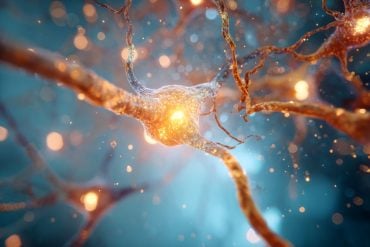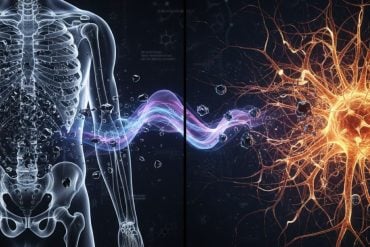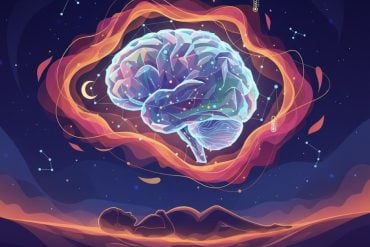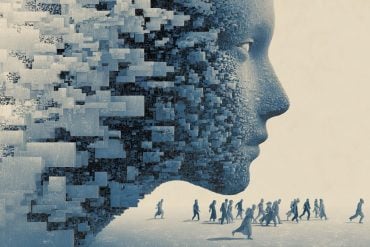Summary: Recent cannabis use can impact sleep duration, a new study reports. Recent cannabis users reported experiencing either too little, or too much sleep.
Source: BMJ
Recent cannabis use is linked to extremes of nightly sleep duration—less than 6 hours or more than 9 hours—reveals a study of a large representative sample of US adults, published online in the journal Regional Anesthesia & Pain Medicine.
This pattern was even more pronounced among heavy users—those using on 20 out of the previous 30 days, the findings show.
Cannabis use in North America continues to increase, with around 45 million adults in the U.S. reporting this in 2019, which is double the figure reported in the early 2000s.
This change has partly been driven by widespread decriminalization in many states over the past decade, as well as research suggesting that cannabinoids may have therapeutic value for pain relief and possibly anxiety and sleep disorders as well, say the researchers.
Cannabis has become popular as a sleep aid, particularly as the prevalence of sleep deprivation and insomnia has increased. Only two-thirds of Americans get the recommended 7-9 hours of sleep every night, and almost half report daytime sleepiness every day.
But the evidence to date on the impact of cannabis on the sleep-wake cycle has been equivocal.
The researchers wanted to see if cannabis use might be linked to nightly sleep duration in a nationally representative sample of US adults (aged 20-59) who had taken part in the biennial National Health and Nutrition Examination Survey (NHANES) for the years 2005 to 2018 inclusive.
And they wanted to know if respondents reported difficulty falling asleep, staying asleep, or slept too much in the preceding 2 weeks; whether they had ever consulted a doctor about a sleep problem; and whether they regularly experienced daytime sleepiness on at least 5 of the preceding 30 days.
Survey respondents were characterized as recent or non-users if they had or hadn’t used cannabis in the past 30 days. Sleep duration was defined as short (less than 6 hours), optimal (6–9 hours), and long (more than 9 hours).
Information was gathered on potentially influential factors: age; race; educational attainment; weekly working hours; a history of high blood pressure, diabetes, and coronary artery disease; weight (BMI); smoking; heavy alcohol use (4 or more drinks daily); and prescriptions for opioids, benzodiazepines, ‘Z drugs’ (approved for insomnia), barbiturates, other sedatives, and stimulants.
Some 25,348 people responded to the surveys between 2005 and 2018, but the final analysis is based on 21,729 who answered all the questions, representing an estimated 146.5 million US adults.
The average nightly sleep duration was just short of 7 hours across the entire sample. Some 12% reported less than 6 hours, while 4% reported more than 9 hours a night.
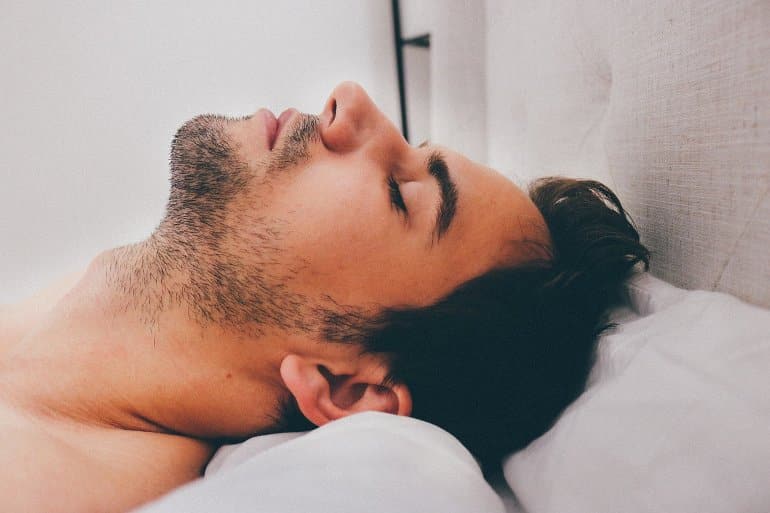
A total of 3132 (14.5%) respondents said they had used cannabis in the preceding 30 days. Recent users were more likely to report not sleeping enough or sleeping too much.
They were 34% more likely to report short sleep and 56% more likely to report long sleep than those who hadn’t used cannabis in the preceding 30 days, after accounting for potentially influential factors.
And they were also 31% more likely to report difficulty falling asleep, staying asleep, or sleeping too much in the preceding 2 weeks, and 29% more likely to have discussed a sleeping problem with a doctor. But recent cannabis use wasn’t associated with frequent daytime sleepiness.
Further analysis of the frequency of cannabis use revealed that moderate users, defined as using on fewer than 20 out of the past 30 days, were 47% more likely to sleep 9 or more hours a night compared with non-users.
Heavy users, defined as using on 20 or more out of the preceding 30 days, were 64% more likely to experience short sleep and 76% more likely to experience long sleep compared with non-users.
These findings differed little across the survey years.
This is an observational study, and as such, can’t establish cause, or reverse causality, for that matter.
The researchers also point to several study limitations, including the reliance on self-reported data and the lack of information on cannabis dose. The historical and the historical and ongoing stigma associated with cannabis use may also have affected the responses to questions about cannabis use, they suggest.
But they say: “Increasing prevalence of both cannabis use and sleep deprivation in the population is a potential cause for concern.
“Despite the current literature demonstrating mixed effects of cannabis and various cannabinoid formulations on sleep architecture and quality, these agents are being increasingly used as both prescribed and unprescribed experimental therapies for sleep disturbances.”
They add: “Our findings highlight the need to further characterize the sleep health of regular cannabis users in the population…Sleep-wake physiology and regulation is complex and research about related endocannabinoid pathways is in its early stages.”
About this sleep research news
Author: Press Office
Source: BMJ
Contact: Press Office – BMJ
Image: The image is in the public domain
Original Research: The findings will appear in Regional Anesthesia and Pain Medicine




